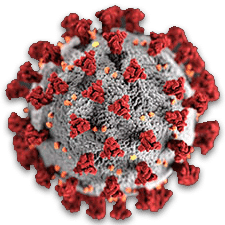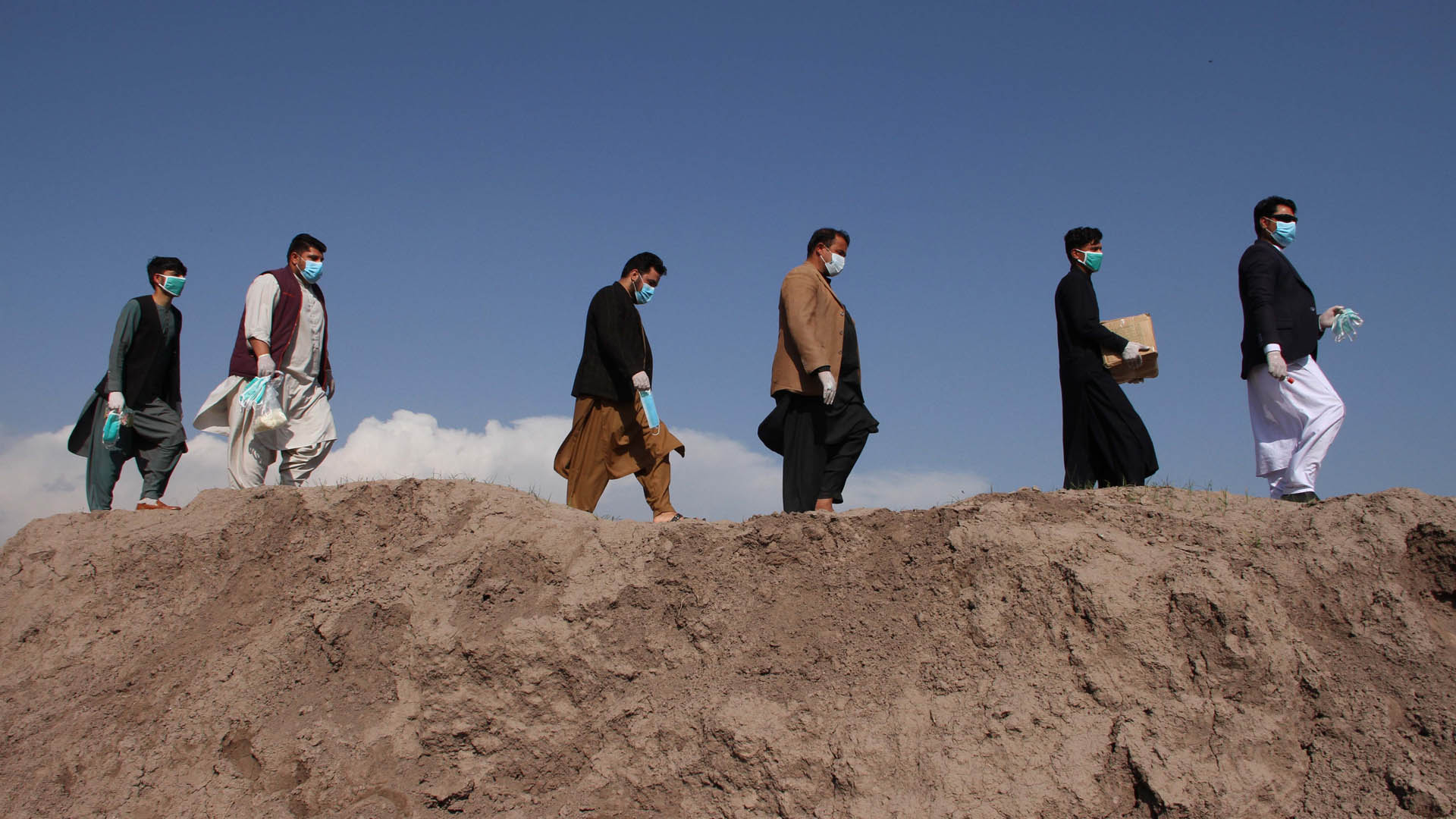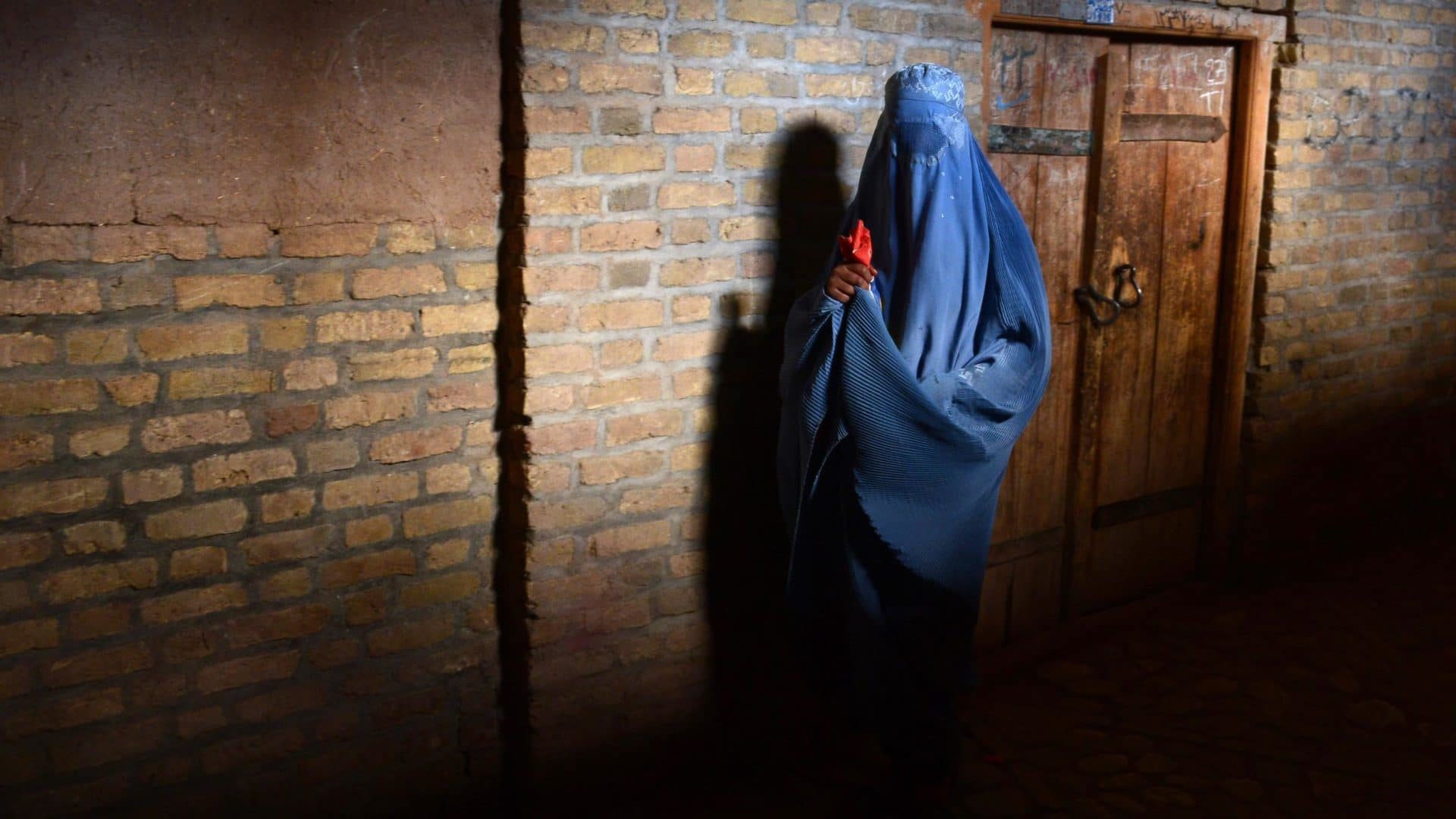With Taliban Help, Afghanistan Girds for a Virus
On March 13, 50-year-old Sayeed Karim attended Friday prayers at his mosque in Mangalha, a remote village in Baghlan Province in northern Afghanistan. While there, he and his neighbors were presented with a unique public information session issued by local Taliban groups. “They talked about the coronavirus,” said Karim in a phone interview with Undark.
According to Karim, who is a village elder, the Taliban rebels informed worshipers that the thousands of Afghan refugees recently returned from Iran must remain in their homes until they can be tested for SARS-CoV-2. Since the 1980s, an estimated 2 million undocumented Afghan refugees have sought asylum in Iran, in an effort to escape violence and economic insecurity in their own country. And for years, Iran has been sending these migrants back to Afghanistan at a rate of roughly a thousand people per day. But as Covid-19 cases have surged in Iran, the number of returnees spiked dramatically. Iran continues its deportations, while many Afghans are now returning to their homeland voluntarily. Afghanistan’s earliest confirmed Covid-19 cases predominantly occurred among returnees, raising fears that the virus will now spread throughout Afghanistan, a country with more than 35 million people.
Governments around the world are struggling to combat the pandemic, but a nation like Afghanistan faces particular challenges because its public health infrastructure is already suffering the effects of war, displacement, and poverty. That’s why the Taliban insurgents fighting the government have gotten involved — conducting awareness meetings like the one at Karim’s mosque, providing supplies, and even offering secure passage to humanitarian organizations and health workers seeking to provide aid to those living under Taliban control. However, Afghan government officials say these efforts will not have the intended effect as long as the Taliban continues to mount attacks on government forces.
“Taliban has offered their assistance, and we do appreciate that,” Wahidullah Mayar, senior adviser and spokesperson for Afghanistan’s health ministry, told Undark. “But insecurity has been our biggest challenge,” he said. “We cannot provide adequate health care services in insecure areas.” And yet the situation is not much better in cities and regions under government control.
As of today, there were a total of 239 confirmed cases of Covid-19 in Afghanistan and five confirmed deaths. But these low numbers may simply reflect a lack of widespread testing, said Nicholas Bishop, emergency response officer at the International Organization for Migration mission in Afghanistan. Until recently, tests could only be performed in the Afghan capital of Kabul, and even there, authorities had just a few hundred testing kits. There is also a general reluctance to be tested due to the lack of awareness surrounding symptoms, self-reporting, and quarantine, Bishop explained.
Bishop is concerned that Afghanistan’s chronically underfunded and underdeveloped health system may not be able to support a large number of patients with Covid-19. But prevention strategies used in other countries may be difficult to implement. For example, social distancing poses a challenge in a country with large inter-generational families living in very crowded homes. That’s why public information campaigns — from the Afghan government and religious leaders — will be critical to saving lives, said Bishop. He added that it is “incumbent upon government and religious leaders to make sure that these messages are transmitted to all areas of the country.”
Since the U.S.-led invasion toppled the regime in 2001, Taliban insurgents have been fighting the Afghan government and coalition forces, and they are currently in control of, or in a battle for control of, roughly two-thirds of the country, running their own parallel government. In a statement issued on March 18, the Taliban referred to Covid-19 as a “decree of Allah” and asked Afghans to deal with it in accordance with the teachings of the Prophet Muhammad. The statement recommended that people recite prayers, seek forgiveness, and increase their reading of the Holy Quran and their charitable giving.
The statement also urged people to adhere to safety guidelines issued by health organizations.
To that end, the Taliban has offered secure passage to humanitarian organizations and health workers. Last April, the group temporarily banned operations by the World Health Organization and the Red Cross because of their “suspicious” activities. Taliban fighters are also conducting awareness campaigns in villages, according to Karim, while providing masks, gloves, and soap to villagers.
The Ministry of Public Health confirmed to Undark that the Taliban insurgents are indeed cooperating with government officials to provide health care and awareness in areas under their control. But despite cooperation in the coronavirus crisis and the recent peace deal between the United States and the Taliban, the agency pointed out that the violence in Afghanistan has not subsided. Insurgents continue to mount attacks on Afghan forces. On March 20, 24 Afghan security forces were killed in an insider attack in Zabul Province.
“There are still provinces such as Helmand, Farah, and Nimruz where our clinics are closed because of the ongoing fighting with the Taliban. We would like Taliban to help us open those clinics,” said Mayar, adding that his agency is a “non-political ministry that provides health care to all Afghans regardless of their location, ethnicity, and political affiliation.”
 |
Got questions or thoughts to share on Covid-19? |
The deteriorating security situation has limited health care access not only to civilians but also to a large number of Afghan troops. “We are in a battle with another virus called the Taliban, who is killing our countrymen,” said 28-year-old Hasibullah, who like many Afghans goes only by one name. Hasibullah, who is currently posted in Ghor Province, said that while he hasn’t heard of cases of Covid-19 among Afghan security forces, an outbreak among the soldiers could be disastrous.
“The government hasn’t provided any specific service to us to deal with this virus yet,” he said, “and we don’t have enough equipment in our hospitals to handle an outbreak.
“If the virus spreads, it might affect the fighting, and that can be very dangerous for security of the country,” he added. “It will be a tragedy.”
Mayar presented a different picture, saying that the Ministry of Public Health is already acting on these concerns. He said that a task force comprised of officials from the Ministry of Defense, the Ministry of Interior Affairs, and other security agencies has taken measures to slow the virus, such as spraying the areas where soldiers live with disinfectants, as well as delivering health messages. Military personnel also have their own health facilities that work in coordination with the health ministry, said Mayar.
Although strict lockdowns in Iran have recently decreased the flow across the border, more than 62,000 undocumented Afghans returned from Iran between March 15 and March 21 alone, according to data from the United Nations Office for the Coordination of Humanitarian Affairs. The province of Herat, which shares a border with Iran, is currently the epicenter of the outbreak in Afghanistan, accounting for 184 of the 239 total cases in the country. Many positive coronavirus cases in Afghanistan’s other provinces have been traced to people having contact with those returning from Iran.
Bishop, who is based in Herat, said that the borders between Iran and Herat are likely to remain open. The city of Herat itself, however, was put on lockdown on March 25, along with the capital cities of two other western provinces, Farah and Nimruz.
Meanwhile, on March 19, the government announced a new testing center in Herat Province. The new center currently has the capacity to perform just 50 tests per day, but Mayar hopes the numbers will increase in the coming weeks.
Many residents of Herat have reported difficulties in obtaining medical care. For example, Sharif Ahmad Aisar, a 34-year-old civil servant, visited a local hospital when he came down with symptoms of Covid-19, including fever, cough, and body pain. Aisar said the hospital staff told him to go the regional hospital. When he arrived at the regional hospital, Aisar was given walking directions to a specialized ward set up for coronavirus patients. But when he arrived at the ward, the door was shut and no one was nearby to help.
Eventually, an employee advised Aisar that he should go to a different hospital that specializes in infectious disease. Once there, “they made me wait for hours and then asked me to pay the fee and make an appointment for later time,” said Aisar, who was, by this point, furious. “I refused to pay,” he said — not because he couldn’t afford it, but because the government had already allotted a budget to combat coronavirus, he said, referring to the $25 million allocated in late February for coronavirus prevention. A substantial share of that money has been directed to Herat.
Aisar was eventually able to pull some strings and call a friend with contacts in the office of the provincial public health director and got himself tested after several hours of waiting. “They tested me because I had the right connections. I can’t even imagine how it would be for someone without a connection or money to get tested here,” he added.
Aisar’s sentiments were echoed by health care professionals. “There are no screenings at the border where thousands of Afghan refugees are returning from Iran,” said Mir Wais Kharooti, a doctor in Kabul. He said that hospitals in the Afghan capital are not taking appropriate preventive measures and that public awareness of the virus is very low. Meanwhile, resources are stretched thin. “Many doctors don’t even have proper PPE,” he said, referring to personal protective equipment, such as masks and gowns.
Kharooti is among the many medical experts who have urged the government to create a special committee to tackle the issue strategically. “I have been warning about this spread of this disease for over a month,” he said, “and I predict this could escalate further. We have very few resources, especially to handle the most critical of the cases.”
Aisar was still waiting for his results three days after being tested. He now worries that if he didn’t have the virus before setting off to three separate hospitals, that he may have contracted it during his journey, which brought him into contact with people returning from Iran. “There was no awareness, no guidance and not even someone to tell them to wear masks or gloves,” said Aisar, describing the hospital where he received testing. “It was crowded and people are just standing close to each other in tight rooms.”
Tracking returnees as they disperse across the country is an extremely difficult task, made harder by the security situation. Health departments are attempting to register people crossing the border, said Bishop, but no formal nationwide tracking system is presently in place. Some provinces are doing contact tracing, however, identifying and monitoring individuals who may have had contact with an infected person. This is possible thanks to the presence of polio social mobilization teams, which have been working in Afghanistan for many years as part of a joint project run by the WHO and UNICEF to eradicate polio through vaccinations.
The Taliban have taken steps to curtail the movement of returnees in areas they control. “During the last Friday gathering, they learned about five new returnees from Iran in our village, so they quickly quarantined them in their homes and called in the doctors for conducting tests,” said Karim, the village elder from Mangalha.
In the face of adversity and lack of medical supplies, the Taliban have employed unorthodox methods using tools they know best — force and intimidation. In Balkh, a northern province, the Taliban helped authorities by detaining a patient who had tested positive for the virus but escaped government quarantine. Such escapes have become common among patients who are unhappy with the health care services they receive. On March 16, for example, 37 people suspected of having Covid-19 broke out of a government quarantine after a violent altercation with health care workers at a hospital in Herat Province.
In Mangalha, too, Karim said that the Taliban had assigned a “health team” — a group of armed fighters — to ensure that those quarantined do not leave their houses. “The health team doesn’t have any medical equipment or training,” he said. Nevertheless, they are succeeding at keeping people at home.











